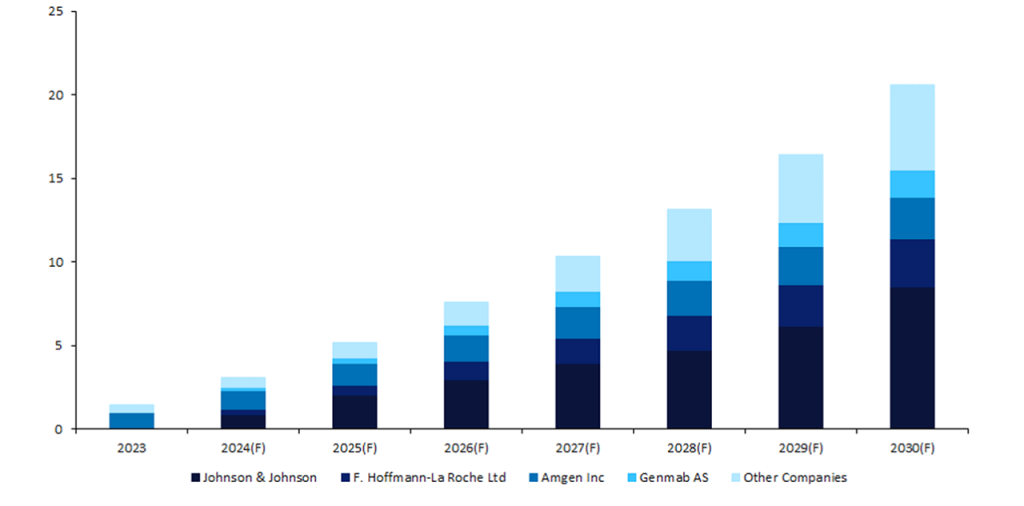Sionna Therapeutics, a biopharmaceutical company dedicated to advancing treatments for cystic fibrosis (CF), has significantly strengthened its position in the CF therapeutic landscape through a strategic licensing agreement with AbbVie. Announced on July 16, the partnership allows Sionna to develop and commercialize multiple clinical-stage CF compounds from AbbVie, including two Phase II compounds (ABBV-2222 and ABBV-3067) and a Phase I compound (ABBV-2851), marking a substantial expansion of its pipeline. AbbVie will receive an undisclosed upfront payment, equity investment in Sionna, and late-stage development and commercial milestones and royalties.
This collaboration follows a lack of CF drug development success by AbbVie, which underscores the strategic importance of combining Sionna's innovative approaches with AbbVie's advanced compounds. For context, CF is a genetic disorder that causes thick and sticky mucus to accumulate in the lungs and digestive system, challenging existing treatment paradigms. Despite advancements, many patients suffer from severe symptoms, highlighting the need for more effective therapies. The acquisition of AbbVie’s clinical compounds enhances Sionna’s ability to address these challenges and solidifies its position as a potential future player in the CF market.
Founded in 2019, Sionna focuses on novel small molecules targeting specific domains of the CFTR protein, particularly the NBD1 domain impacted by the ΔF508 mutation. Its approach aims to correct protein misfolding and instability at the molecular level, offering a promising new direction for CF therapy. Targeting NBD1, considered the "holy grail" of CFTR correction due to its challenging binding properties, Sionna’s strategy could potentially overcome significant obstacles in CF treatment. In recent years, Sionna has embarked on several notable initiatives to advance its CF pipeline. For instance, in January 2024, Sionna initiated a Phase I clinical trial for its lead compound, SION-109. This trial marked a critical step in evaluating the safety and efficacy of this promising therapy, which targets the defective CFTR protein to improve lung function and overall patient outcomes. In March 2024, the company completed a Series C funding round, in which Sionna secured $182m, following its April 2022 Series B funding round, where the company raised $111m. This capital infusion is expected to double the company’s clinical-stage assets and accelerate the development of its CF therapies.
The strategic implications of the agreement with AbbVie are substantial for both companies. For Sionna, incorporating AbbVie’s clinical-stage compounds could expedite the development of new treatments and potentially bring innovative therapies to market faster. This aligns with Sionna’s commitment to strengthening its portfolio and addressing the needs of CF patients more effectively. In parallel, AbbVie benefits by reallocating resources towards other strategic priorities while still contributing to CF advancements through Sionna’s continued development efforts. The partnership with AbbVie is particularly noteworthy given AbbVie’s recent challenges, such as the failure of ABBV-119 in a triple-combo therapy trial. Despite these setbacks, AbbVie’s collaboration with Sionna reflects a strategic pivot, leveraging Sionna's innovative approach to potentially bring more effective therapies to market.
The market impact of this agreement could be significant, potentially reshaping the competitive dynamics in the CF treatment market. Sionna’s acquisition of these clinical-stage compounds not only strengthens its pipeline but also exemplifies the dynamic nature of strategic partnerships in the biopharmaceutical industry. Currently dominated by Vertex Pharmaceuticals, the market could see a shift as Sionna’s expanded pipeline introduces new therapeutic options. Vertex’s flagship CF therapies, such as Trikafta, have set a high standard in treatment efficacy, but Sionna’s new assets hold promise for further advancements. Sionna's pipeline is designed to address the complex pathology of CF through a multifaceted approach, targeting various regions and functions of the CFTR protein beyond just NBD1. This competitive pressure could stimulate further innovation in the CF treatment space, ultimately benefiting patients through improved care and outcomes.















